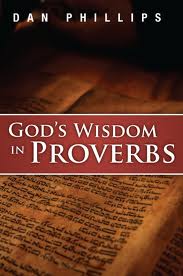
[Notes of highlights from 11:06-12:30.]
I turned on the webcast late, and the first thing that I heard was Dr. White saying, "How can you be angry with a squirrel?!"
I'm still not quite sure what prompted that question. :)
Dr. White: "There needs to be an explanation [from T.D. Jakes] about what he has said in the past."
Dr. White played an audio clip of T.D. Jakes "preaching" from John 14, misquoting the text as saying, "I
am the Father."
Another audio clip from Jakes, 1 Tim 3:16: "God was manifest in the flesh" (KJV).
A final clip from Jakes, casting aspersion upon the term "Trinity," emphasizing the oneness of God, and defining Father, Son, and Spirit in terms of God's
activity. (Father in creation, Son in redemption, Holy Spirit in regeneration.)
Dr. White: The attitude expressed by Mark Driscoll would have us to conclude that Athanasius was a fool, who was sinful in his defense of the Trinity.
Audio clip from the "Elephant Room" meeting of "evangelicals:" Jakes claims to have been converted to Christ in a Oneness church. [All subsequent quotes from T.D. Jakes are from the "Elephant Room."]
Dr. White: the "Elephant Room" is a "
Downgrade Controversy."
Dr. White: previous generations were willing to give up their lives in defense of the truth of the Trinity.
Dr. White: Driscoll will "go off" on Justin Brierly re: complementarianism vs. egalitarianism, but will not scrutinize Jakes on the Trinity? Though complementarianism is important, this is symptomatic of doctrinal imbalance.
Jakes: "[Oneness] is really not the best description of how I now understand the godhead."
Dr. White: "Anybody who believes in objective truth should find this to be offensive." We should reconcile in regard to personal sin, but not compromise in regards to Truth.
Dr. White: Oneness teaching and Trinitarianism are "night and day."
Jakes: [quotes several Trinitarian proof-texts] "made me re-think some of my ideas... there are some things that can be said about the Father that cannot be said about the Son," etc.
Dr. White: every Oneness advocate can and does use this kind of language.
Jakes: "There is very little difference in what I believe and what you believe."
Dr. White: Paul wrote about "false Jesus'." The issue is whether Scripture is clear enough to decide an issue like the Trinity.
Driscoll [from "Elephant Room," question directed to Jakes]: is one God manifested in three ways "
successively," or is He three "
simultaneously."
Dr. White: Driscoll's question is good as far as it goes, but in the following discussion, note that Oneness literature stresses the distinction between "manifestations" and "persons."
Jakes: "Neither of them totally get it for me... I'm not crazy about the word persons" (citation of 1 Tim 3:16). "So God was
manifest in the flesh."
Dr. White: the belief statement of Jakes' congregation is neither clearly Trinitarian or Oneness (it uses the term "manifestations"), and it is insufficient for a defense of the biblical faith.
[A point that Dr. White mentioned previously is that "manifest" is a verb in 1 Tim 3:16, rather than a noun, as Jakes and Oneness advocates use the term.]
Dr. White: we can see when the secular world is being intolerant, while claiming tolerance (for example, in regard to gay marriage), but when those who claim Christ claim tolerance while sacrificing truth, we sometimes fail to see what is going on.
Dr. White [in response to a question re: how we can determine what properly constitutes "heresy"]: we must rely on the consistent testimony of Scripture (the "analogy of faith"). Many passages may be interpreted the wrong way based merely upon the grammar or even in the immediate context of the passage, but we must interpret each passage in light of the entire canon. Orthodoxy is not a matter of "majority wins." For example: "Paul's teaching on grace" will always be a minority opinion. Athanasius was, for a time, in the minority in regard to the Trinity.
Manuel (a Oneness caller) confirmed that he would consider Jakes heretical for his being "comfortable" with Trinitarian language. Manuel (if I understood him correctly) made the point that it seemed like Jakes seemed to be compromising his Oneness beliefs in order to be accepted into a certain "club" [of "evangelicals"].
John Coleman (an African-American caller, who does apologetic ministry, much of which takes place within the African-American community) made the point that Jakes does not ONLY have a problem with the Trinity, but also with "subjectivism" in his preaching. John says that Jakes is adept at accurately using a dialect in order to achieve his own ends; with the economy sliding and people giving less, Jakes is now suddenly orthodox!? "The drastic change, so-called, that has come about is just another dialectical ploy."
Dr. White: I would not want to "crush the bruised reed... I have, obviously, worked with" people who have come out from under Oneness teaching, but Jakes' language is not the language of repentance.
Dr. White: a lot of people do not understand why the Trinity is important in the first place.
Labels: live-blogging
 1. Scientific laws do not preclude miracles, because scientific laws are for closed systems.
1. Scientific laws do not preclude miracles, because scientific laws are for closed systems.























